Young soldiers from Con Dao prison returning to Saigon in May 1975. The man in the middle, wearing a checkered scarf, is Le Van Nuoi - Photo: collected by the author.
Next, the radio broadcast a call to youth from Mr. Le Cong Giau, representative of the Saigon-Gia Dinh Youth Union. I stood silently in Con Dao, listening to the voice from Saigon, my heart overflowing with longing for my loved ones in Saigon.
Back to the mainland
Unexpectedly, at around 12 noon, the Con Dao Office announced via loudspeaker that several students, including Le Van Nuoi, were called upon to prepare to board the ship back to Saigon at 1 PM.
The naval vessel, with a capacity of 150 people, was overloaded with over 200 due to a shortage of ships. Revolutionary naval forces were landing on the Spratly Islands and many other islands along the East Sea to reclaim maritime sovereignty .
The older people were allowed to stay in the hold, while the younger ones like me voluntarily went up to lie or sit on the deck for the entire two-day, one-night journey from Con Dao to Saigon.
The youngest ones, like me and Vo Tuan Linh, were lying right at the edge of the deck, while the middle-aged men, like Uncle Huy, lay in the middle. Uncle Huy told me, "Hold onto my hand. Otherwise, if you fall asleep, you'll fall into the sea and that would be terrible."
When I met Uncle Huy on this train, I learned that he was the father of Pham Xuan Binh and Bach Cuc, whom I had met at the women's prison. Sometimes, I secretly glanced at Uncle Huy, deeply moved to see a father and his eldest daughter imprisoned together in Con Dao! War is so brutal! So many families were separated, so many sacrificed their lives like Uncle Huy's!
Whether I was sitting and gazing at the sea or lying down to rest, I had to secure one arm to the iron railing of the ship; I didn't dare sleep, for fear of falling into the sea.
I told myself: Don't fall asleep! Don't fall asleep! Be careful not to fall into the sea and die from the water, not from sacrificing yourself for the water! The waves soaked my clothes. Yet I still managed to doze off for a few hours.
I woke up as the sunrise appeared on the sea, a brilliant sight like the joy of freedom – like a sunflower blooming in the heart of a schoolboy who had been away from his hometown of Saigon and his family for almost five long years.
The naval vessel made a brief stop at the South Vietnamese Army's field police training center in Vung Tau for half a day, then continued on to the mouth of the Saigon River.
Upon reaching the Long Tau section of the river, the ship got stuck for about an hour due to getting lost in the complex waterways. Fortunately, some waterway guides from the Saigon port drove out in a speedboat to guide the naval ship into the Saigon River.
By noon on May 17, 1975, the ship docked at Bach Dang port after a three-day, two-night voyage fraught with storms.
Hundreds of prisoners crowded onto the ship's deck, facing the red flags with yellow stars and the half-red, half-blue National Front flags fluttering atop the high-rise buildings along Bach Dang Wharf in Saigon. Everyone was moved, choked with emotion, and tears welled up in their eyes.
A group of young National Assembly delegates met in Ba Dinh Hall during the opening session of the 6th National Assembly on July 2, 1976. From left to right: Huynh Tan Mam, Army Hero Minh Hien and Mai Phuong ( Ben Tre ), film actress Tra Giang and Le Van Nuoi - Photo: Provided by Tra Giang
Reunion with parents
On May 18, 1975, my friend Nguyen Van Vinh, a Saigon City Youth Union official, carrying a rifle, arrived at Hung Vuong High School in District 5 in a Jeep driven by a self-defense youth.
This is where I and other revolutionary political prisoners, recently released from South Vietnamese government prisons, were attending a course called "The Victory Course." Vinh came to pick me up to visit my parents' home in District 4, Saigon.
Entering the house, I excitedly said, "Hello Dad, I'm home!" My father, who was cutting a customer's hair at his home barbershop, was surprised and smiled broadly, revealing his teeth, which were stained black from dyeing them in his youth in the North: "You're home!"
Then I went inside, walked to the wheelchair where my mother was sitting, and, holding her hand, choked out, "I'm home, Mom!" My mother hugged me and wept uncontrollably, "Oh my God! You're alive and back! I'm so happy! For the past ten days or so, I've been walking with my cane looking for you, but I couldn't find you anywhere…"
Suddenly, I noticed that my mother still kept her betel nut basket with her, as if to say that she always remembered her only son.
It was very touching. Back in the political prison camp at Chi Hoa, some of the inmates wove betel nut baskets and small handbags by weaving together tiny nylon threads like beads, in many shimmering colors, which were very beautiful.
In 1973, I commissioned my brothers to weave a brown betel nut basket with white lettering. The lid read "Happy Longevity, My Dear Mother," and the sides read "Chi Hoa" and "LVN" (Le Van Nuoi). I sent it home as a gift to my mother. I secretly hoped that whenever she chewed the betel nuts in the basket, she would remember her only son, who was exiled somewhere!
Surprisingly, after more than 50 years, my mother's betel nut basket in the family's keepsake cabinet is still sturdy and hasn't faded in color.
The reason my mother had to use a wheelchair back then was because in 1973, after visiting me at Chi Hoa prison with my older sister, they stopped by the house of my aunt, Thanh Mai's mother, and Le Van Trieu - two friends of Le Van Nuoi from the student movement - on Nguyen Cu Trinh Street, District 1.
As my mother and I were leaving and crossing the Tran Hung Dao intersection, a speeding motorbike suddenly hit my mother, causing her to fall and hit her head on the road, rendering her unconscious. The driver, wearing a South Vietnamese Navy uniform, and my sister helped my mother to the side of the road. About 10 minutes later, my mother regained consciousness.
My older sister recounted that at the time, she saw that Mom only had minor scratches and could stand up and walk, so she had the driver leave, and Mom didn't ask for any compensation! Unexpectedly, a few days later, Mom complained of a terrible headache and then became delirious, requiring emergency treatment at Cho Ray Hospital .
The doctors diagnosed her with a traumatic brain injury and said she needed emergency surgery. The surgery was successful and saved my mother's life, but because she missed the "golden time" after the car accident, she was paralyzed in one leg and had to use crutches. Then, a year later, both legs became weak and paralyzed, forcing her to use a wheelchair.
For months after my mother's accident, only my older sister and friends visited me at Chi Hoa prison. Suspicious, I asked my sister and learned that my mother had been hit by a car and was paralyzed in her legs. I cried out in anguish, "Oh my God! Why didn't you tell me?!"
Sister Hai replied, "Mom told me not to tell Nuoi about her being hit by a car. He'd already suffer in prison, and hearing this would only add to his distress and worry!"
My mother and older sister visited me twice a week at Chi Hoa prison, as well as the times my mother went alone to the headquarters of the Saigon Student Union at 207 Hong Bang Street, District 5 (now An Duong Vuong Street) to visit and bring me food.
At that time, the Saigon Student Union, which I was in charge of, also had its headquarters at this address.
My mother often cooked and brought me dishes she knew her son liked, such as bitter melon soup stuffed with snakehead fish, braised lean pork with eggs, fertilized duck eggs, sticky rice with red beans, etc.
In 1974, I was exiled to Con Dao Island, imprisoned in a remote "tiger cage" area, and my relatives were not allowed to visit me.
There were two items I always carried with me throughout my years of exile: a military-style backpack for my clothes and a Guigoz aluminum can (a Guigoz brand powdered milk can) that my mother sent me to eat with brown rice, mixed with sesame seeds and peanuts.
Once or twice a week, my mother and my older sister would visit me at Chi Hoa prison, bringing a basket full of various snacks. Once a month, my mother would bring a new can of sesame salt, taking back the old empty can. Unfortunately, around 1980, the backpack had rotted away and had to be discarded, and the Guigoz can was lost!
During those long nights in prison, I would silently shed tears whenever I remembered my family, my parents, my siblings, and longed for the favorite dishes my mother used to cook for me at home, at the Student Union, and at Chi Hoa prison in Saigon…
My mother, Nguyen Thi Toan, passed away in 1984 at the age of 68 (1916-1984).
Then I went inside, walked to the wheelchair where my mother was sitting, and, holding her hand, choked out, "I'm home, Mom!" My mother hugged me and wept uncontrollably, "Oh my God! You're alive and back! I'm so happy! For the past ten days or so, I've been walking with my cane looking for you, but I couldn't find you anywhere…"
-----------------------------
Next episode: Saigon, the early days of peace
Tuoitre.vn
Source: https://tuoitre.vn/30-4-1975-ngay-tro-ve-ky-2-vuot-trung-duong-ve-lai-sai-gon-20250415083900442.htm#content-2


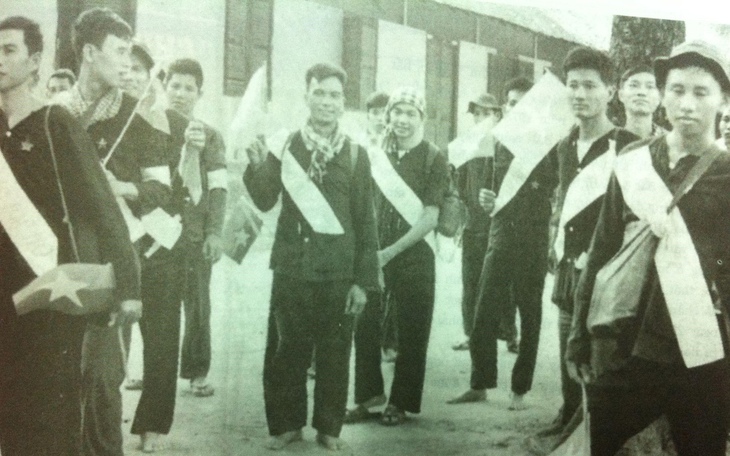
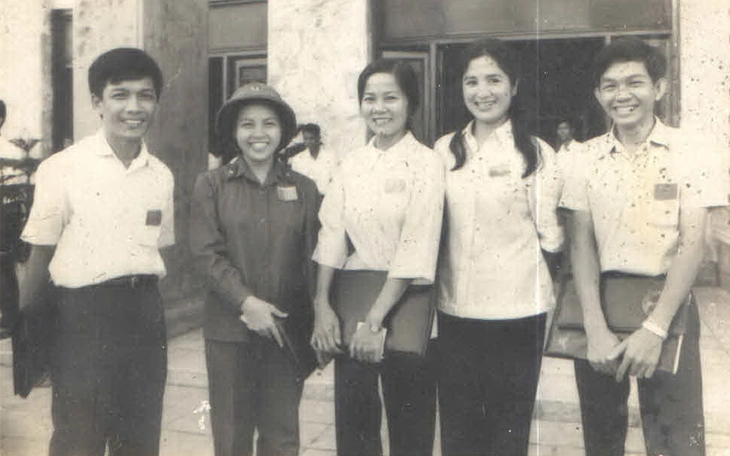




![[Image] Close-up of the newly discovered "sacred road" at My Son Sanctuary](/_next/image?url=https%3A%2F%2Fvphoto.vietnam.vn%2Fthumb%2F1200x675%2Fvietnam%2Fresource%2FIMAGE%2F2025%2F12%2F13%2F1765587881240_ndo_br_ms5-jpg.webp&w=3840&q=75)





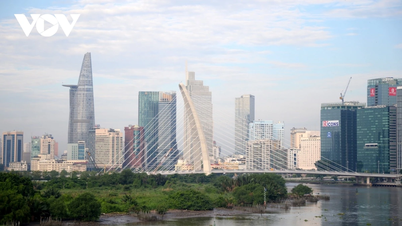



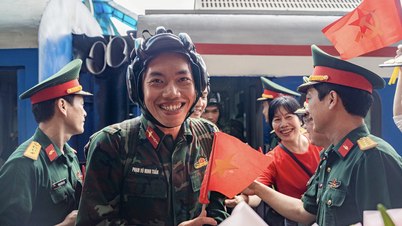

















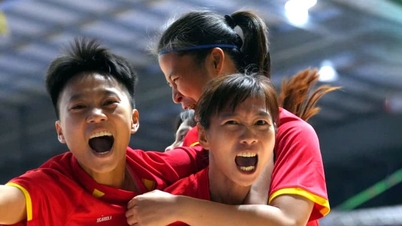
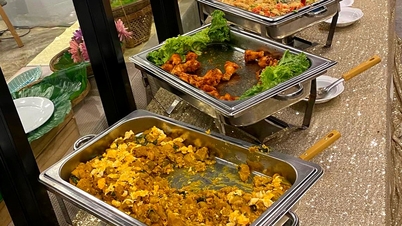

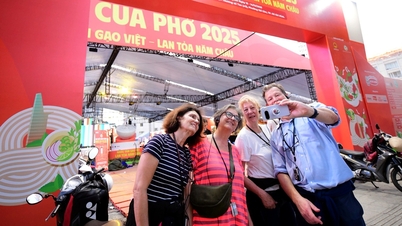
























































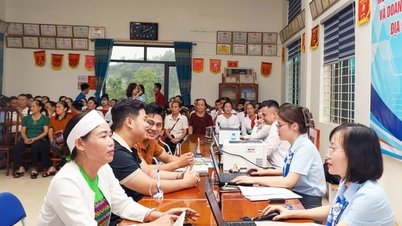
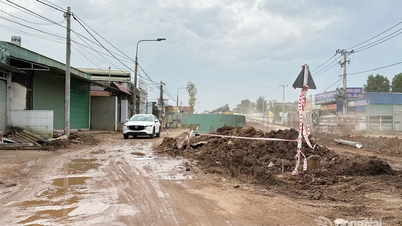

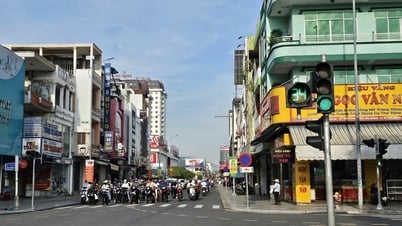










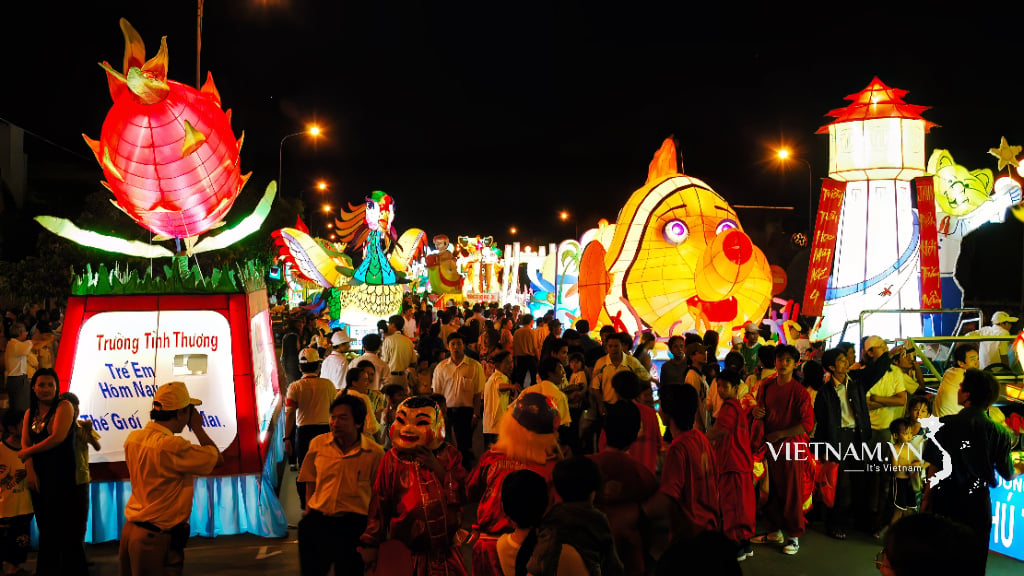



Comment (0)